Vulnerability can be difficult to convey, but even more difficult to receive. That’s true in music, but it’s especially true in conversation.
Jessica Boudreaux knows both of these things. After a several-year battle with breast cancer comes THE FASTER I RUN, her debut solo album that acts as both a document to the struggle and pain experienced during and after the cancer diagnosis, but also a reflection on the ways cancer reshaped her upbringing and the future. It’s a collection of songs that should feel suffocating by proxy of the experiences they’re drawing on but instead read as accessible, poppy, and above all else, vulnerable; modern pop motifs, college rock riffs, and cathartic vocal deliveries bring each song out of the darkness in a way that’s remarkably accessible and brilliantly balanced. That Boudreaux was so open and honest in discussing the record with me perhaps shouldn’t be a surprise, but nonetheless was a gift—we didn’t know each other prior to this discussion, and so it was a privilege to pick her brain on one of the more complexly dense garage pop records of the year. Enjoy our conversation about battling cancer, cursing, LEFT BEHIND, and more!
The record reads as though there’s a lot of grief, and anger, and working through those kinds of emotions for obvious reasons. Having a conversation about your record kind of has to begin with what you were, like, mentally going through for, like, several years fighting cancer. For you is that an inappropriate first, like, stepping stone in discussing your record?
Jessica Boudreaux: Not at all. No, not inappropriate at all.
I don’t know how many interviews you’ve done to date for the album, but has that part gotten, I don’t know, exhausting? To have to not only relive the energy recording the record but then now have to talk about it all the time?
JB: So far so good. I’m in a pretty good place after a lot of work in therapy *laughs*. The sun’s out, which makes talking about hard stuff easier. And yeah, I think the record was very healing for me, so I’m grateful for it in that way. You know, the circumstances leading up to it… it was a very important part of me getting to the place that I am now. So don’t mind, I want to talk about it, you know?
I do feel like it’s the kind of work that if you give it to someone without any context, they would be, like “Oh, this person is really working through some deep, heavy emotions.” But not in a way that makes it a difficult listen. Were there, like, touch points for you of other records or pieces of art that people are similarly working through? Emotions around cancer, or the possibility of death? Because I thought about, say, A CROW LOOKED AT ME by Mount Eerie, but that’s a really hard record to listen to on any kind of regularity because it’s so raw and cutting—your record by comparison is a lot of fun to listen to even in spite of the fact that there’s equally heavy ideas being explored. Were there those kinds of touch points during writing or recording?
JB: Not really. I haven’t listened to that album. I know of it, but you know, I have lost a lot of people that I love from cancer and I never felt ready to listen to it—and now I definitely shouldn’t. It’s really hard, and is still hard, for me to take in content from, like, the caregiver perspective. Every book you read, or every movie you watch, someone’s like, “Oh yeah, she died of cancer.” And I didn’t notice that as much as I do now.
I wouldn’t necessarily say that there was anything that I referenced in making this directly. But I do think a lot about the War on Drugs’ LOST IN THE DREAM, where he was suffering from agoraphobia and, like, writing a record kind of locked into, like, his apartment and working through that. I think about that album a lot and I think about that desperate mindset. I thought about it when I was making this, but I actually did not feel like I was in a desperate place (with THE FASTER I RUN). I was actually in a pretty good place. Maybe that’s why the record doesn’t come across as super dark or heavy, because I was working through really complex, sometimes pretty dark, things. But I was actually, sort of, in the process of coming out of a lot of it as I was writing it.
I think it’s kind of telling that the first single you put out was “Be Somebody Else.” And that first line is literally, like, you telling us that you want to be somebody else. It’s almost like by the time you hit the recording process of making it, you were beginning to explore a thesis of transition in some way. I love that you referenced ETERNAL SUNSHINE too in the bio—you see some of the people in the waiting room of that movie and you’re, like, yep, those people are going through a different kind of thing than the main character, wanting to maybe erase grief or death.
JB: It got very literal for me. I thought about that movie a lot when I went through this two year period, and during all of this I—I learned later that I actually have OCD, and I didn’t know because I hadn’t had that diagnosis ever, but I also didn’t know that that could look different from, like, tapping the light switch five times. But it was the intrusive thoughts part of it. I had a very intense urge (during the cancer diagnosis), on a pretty consistent basis to the point where it would kind of swallow almost entire days, to, like, Google things. But I would just Google the same thing over and over and over again and I would find the same study. I would do it every day, like over and over and over again, I would get stuck in this loop. And I would read these studies—and I’m not a fucking doctor—but I would read these medical studies that would freak me out. And I acquired so much information that I got to this point where I was just like in therapy one day and I was, like, I wish that I could take, like, bleach to my brain and just fucking scrub out this information that’s now just floating there and only exists inside my mind to scare me. There’s so much that I wished that I could have unlearned during that process.
It’s funny, because the thesis that ETERNAL SUNSHINE and Kaufman get to at the end right is that even if you were to be able to scrub your brain, like, how much value would you actually be getting from it, would you just be relearning the same lessons down the line. By the end of the movie, regardless of the suffering and pain that it caused, you came out the other side and you are who you are now. Looking back on that process of battling cancer, do you feel that way now?
JB: I just wanted to forget I had it. You hear from a lot of people that the part after beating it is harder, and I would be like, you’re stupid, there’s absolutely no way. And then when I got to the part after, I was like, oh no, this is a lot harder because you’re relearning how to be a person in the world with this new kind of heaviness and especially with breast cancer there’s a risk of recurrence and for me, that recurrence risk extends for… like pretty much as long as I’m alive.
And there was this moment of, like, how am I supposed to just get out of bed? Or go to the grocery store? How am I supposed to just be normal knowing that there’s this thing that might pop up again one day and kill me—which is very dark. At the same time having that knowledge changes the way that you move about the world, and you see things in positive ways too. It helped me align more with my core values as a person and what’s important to me. And it has made me realize what doesn’t serve me and what does, or who needed to kind of be removed from my life.
You had that great line in the press release that was like, “I know more about myself now than I did when I was in Summer Cannibals.” It’s such an obvious thing to say and at the same time, like, it bears repeating that you’re a different person.
JB: It’s, like, how long would it have taken me in my life to learn those lessons? To kind of reevaluate things and really appreciate my life. There was a song that didn’t make it onto the album that was just like—I can’t remember exactly what the lyrics were, but the chorus was something like, “I didn’t know how bad I wanted to live until I felt like I was going to die.” I feel like that’s not something that we get confronted with, generally speaking, at 30 years old. It’s the thing where like, I’m not glad it happened, but I was glad to learn some of these things and be able to put them into practice before I would have gotten to that place later without them.
I really love the song “Something In My Gut,” but that song feels like the darkest hole of the record in some ways—at least for me it’s the saddest one on the record. You have that verse, “What happens when you waited for the end / 20 years and counting / Waiting to be left behind / Lost a lot of life putting out little fires / That were only in my mind.” Was there ever an instinct to just be, like, fuck making a pop record, fuck making a rock record, fuck the fact that I was in Summer Cannibals and we knew how to do that like the back of our hands, what if I just were to make an extremely sad, harrowing kind of emotional experience?
JB: You know, I was so depressed for so long, like during and after treatment that, at that point, I needed something that would provide catharsis without digging me deeper into the hole. And, it’s interesting with “Something In My Gut.” When I was diagnosed with PTSD after cancer, in that therapy I did EMDR therapy, we kind of realized that there was this unresolved trauma from when I was a kid around religion. And I was raised in the South, in Louisiana, and I had a Bible teacher who was very obsessed with the rapture— she would say when I was in the third grade, like, it’s going to happen any day, I can feel it. And she made us watch this movie called LEFT BEHIND.
I remember those books in particular so well. They were, like, such a viral thing. Didn’t they also make a LEFT BEHIND movie with Nick Cage?
JB: Oh interesting, I only saw the one with Kirk Cameron (from 2000). But I was very young. Like, yeah, third grade. And it changed my life. It was when I developed anxiety disorder. I started having panic attacks. Cause she would say—and I can remember it so vividly and I was so young—she’d say, “Y’all are old enough to where if you don’t accept Jesus, Lord and Savior, into your heart that you will be left behind, and he will take your parents and you will be left here to face the devil on your own.” And I was so young. I remember sitting there shaking.
So “Something In My Gut” is actually very literal. I started therapy being, like, I’m so messed up from cancer—so messed up from cancer—but realizing that there was a lot of stuff that I just never dealt with. The diagnosis kind of forced me to reexamine how that experience with religion, or how being gay in Louisiana, made this even scarier. Dealing with this feeling of like, oh my god, if I die am I gonna go to hell? There was so much wrapped up in getting sick that was just residual from my life before. That song was so important and cathartic for me to write because it was as I was doing that work to kind of heal my younger self.
It feels very all encompassing to hear you talk about it. It’s not just the theme at hand, but also how much the cancer and that battle was informed by your childhood.
JB: When things happen to us, it makes us reflect. I don’t think that I could have handled making an entire record like that. But that song—and that was definitely the darkest and the heaviest—felt like enough for me.
Just speaking of catharsis, you have some really good moments of cursing on this album.
JB: Listening to the mixes, I was like, “Oh my god, Jessica, you cursed so much.” *laughs* But in making something true to me, it felt like it was a very uninhibited album. You know, like, what do you want to say?
The “goddamn” you throw out on “Main Character” is great. There are a bunch of good F-bombs—”Something In My Gut,” “Back Then,” “Be Somebody Else.” They all just ring out. When you talk about the catharsis, like, as a listener they feel really impactful—I hope that you take that as a compliment.
JB: Good! You know, I really wanted the Summer Cannibals records to do well—like I really wanted them to be heard by as many people as possible, and I really wanted the shows to sell out. And I really like all of those things I made back then. But I felt like I fell into the trap of, as I was making things, I was already considering how they would be received. And hopefully that doesn’t take away from those records because I love them and they’re very true to me. But with THE FASTER I RUN, I was just not thinking about any of that—like, I went to do the radio edits and I was like these sound weird *laughs*. But that was part of what made the record cathartic. I just wasn’t considering how It would perform.
You can grab yourself a copy of THE FASTER I RUN over on Bandcamp!


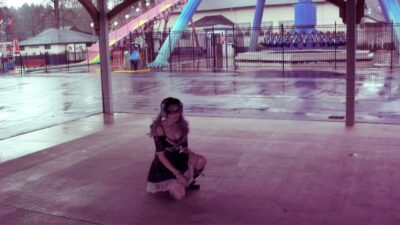
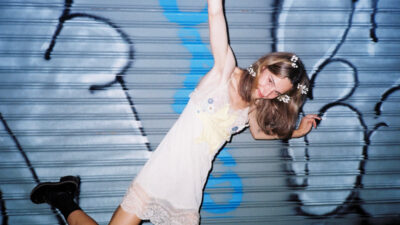
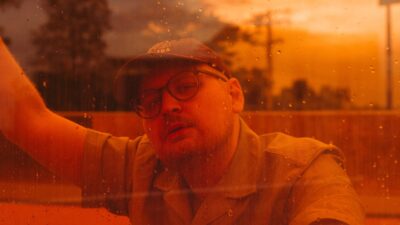
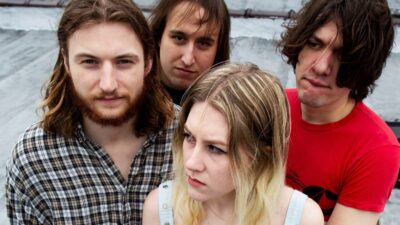
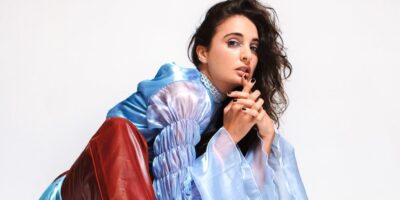
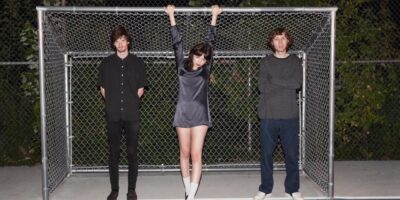

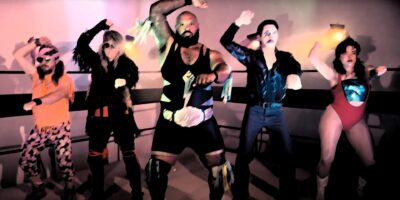
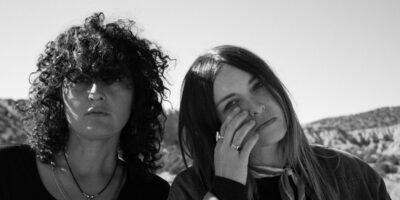
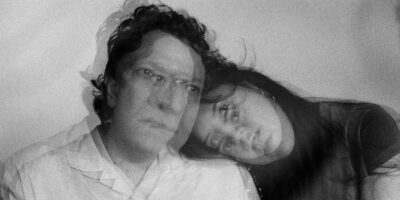




Comments